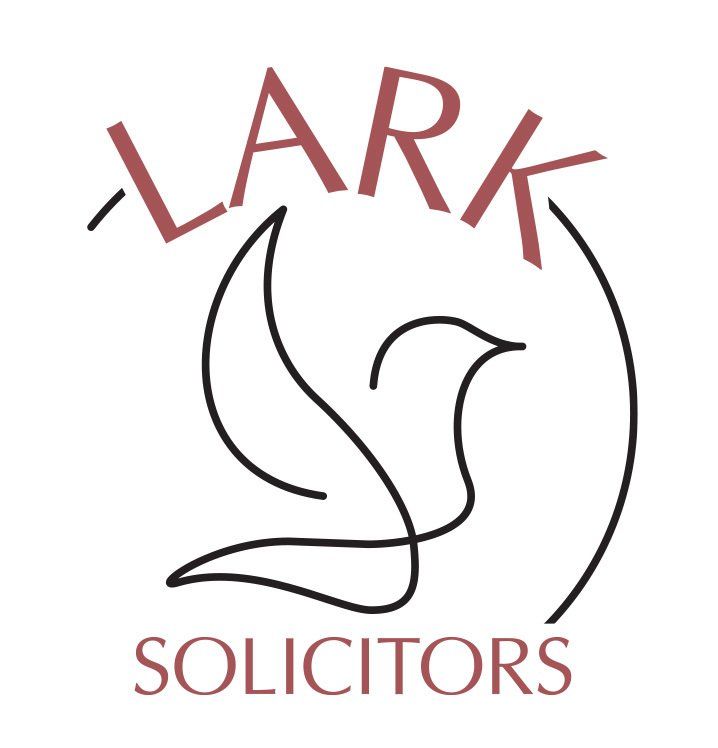FAQs
Jargon Buster
Legal terms can be confusing. That’s why at L.A.R.K we aim to cut through the legal terminology and explain things simply and clearly. We cut through the ‘legalise’ and give advice in plain English to ensure that you’re informed and able to make the right choices for your personal situation. However, the courts and other solicitors will use jargon, especially within documents, and this section is a handy reference guide as it provides some simple definitions for some commonly used words.
At L.A.R.K. Solicitors we pride ourselves on our personal service
So if you’re ever in doubt about what something means then feel free to contact us, we’re always happy to help.
Your Personal A-Z Jargon Buster
Acknowledgement of Service
When the court posts the divorce papers to the Respondent, he or she has to fill in a simple form, called the Form of Acknowledgment of Service, to confirm that they have received and read the papers. This form then has to be signed and sent back to the court office.
Affidavit
An affidavit is a statement telling the court that everything in your divorce petition is true and accurate, and it is a sworn statement. You have to take it to another solicitor, or a Commissioner for Oaths, who will ask you to sign it, say a form of words and will then witness your signature. The affidavit is the same thing as giving evidence on oath, without having to go to court.
CAFCASS
CAFCASS is the Children and Family Court Advisory and Support Service. A CAFCASS officer focuses on the needs and well-being of children involved in divorce cases. These social workers prepare reports regarding the children and in the event of a disputed child proceeding, they advise the Court on the best option for the child.
Civil Partnership
This is a legal union between a same-sex couple, giving them the same legal rights as their heterosexual counterparts.
Consent Order
If the parties agree on who gets what after a divorce, you can apply to the court for a financial and property order, without the need for a court hearing. The consent order usually contains a ‘clean-break’ clause, and this means that it is final and binding, and prevents either party from making any further claims against the other for life, or against their estate should anything happen to them. This is known as a clean-break order.
Contact Order
This order will specify that the ‘absent’ parent can see the children at all reasonable times, and may contain other provisions such as for ‘staying contact’ which allows for the children to stay with the other parent at regular intervals, often weekends and school holidays.
Decree Nisi
Once your affidavit has been sent to the court, the Judge will read your petition, and all the other papers, and will in most cases send us a certificate to say that your divorce will be granted. The Judge will also fix a date for the Decree Nisi to be pronounced. This Decree is the first Decree, and you will have to wait another six weeks for the divorce to be finalised.
Decree Absolute
This is the legal ending of the divorce. Once this has been granted, your marriage has been dissolved and you are legally single.
Divorce
Divorce is the legal process for ending a marriage. The divorce itself does not include settling finances or arrangements for any children of the marriage.
Domicile
Domicile is a legal point which takes into account where a person was born, where they are living now and where they plan to live. It is relevant in considering in which country you should apply for divorce.
Habitual residence
This refers to a person’s usual place of residence; the place with which they have a firm and established connection. It would normally be based on evidence of a reasonably long-term stay in that country together with other evidence of the individual’s personal and professional life to demonstrate the continuity of the connection between that person and the place of residence.
Marriage
Marriage is a legal contract between two individuals. It creates the concept of joint assets and liabilities.
Mediation
This is an option for couples unable to reach agreements concerning their children and finances. A mediator assists the husband and wife in discussions of these topics.
Parental responsibility
This refers to the established rights and responsibilities a parent has for his or her child before, during and after the divorce proceedings.
Petition
This is the main document in divorce proceedings. It contains factual details, such as the parties’ full names and addresses, the date and place of marriage and brief details of why the marriage broke down. The document also contains a request for the court to dissolve the marriage, and may also contain claims for maintenance, pension-sharing orders and orders concerning other assets of the marriage such as the house.
Petitioner
The party who files the petition at court is known as the Petitioner. This will be you, if you are bringing the divorce.
Prenuptial agreement
A prenuptial agreement is a document in which a couple set out their rights in relation to any property, debts, income and other assets purchased together or acquired individually (e.g. through inheritance), or that they have bought into a relationship.
Prohibited steps
This is a court order that specifies prohibited actions of the parents, such as moving out of the country or changing the child’s surname.
Residence order
This is the court order that indicates the living arrangements for the child.
Respondent
The respondent is the other party in the divorce. This will be you if your partner is the one filing for divorce.
Separation agreement
This is for couples who may or may not have been married but who intend to separate and want a legal document drawn up to confirm arrangements for their finances.
Complaints Procedure
We want to give you the best possible service. However, if at any point you become unhappy or concerned about the service, we have provided then you should inform us immediately, so that we can do our best to resolve the problem.
In the first instance it may be helpful to contact the person who is working on your case to discuss your concerns and we will do our best to resolve any issues If you would like to make a formal complaint, then you can read our full complaints procedure set out in out Terms and Conditions. Making a complaint will not affect how we handle your case.
What to do if we cannot resolve your complaint
The Legal Ombudsman can help you if we are unable to resolve your complaint ourselves. They will look at your complaint independently and it will not affect how we handle your case.
Before accepting a complaint for investigation, the Legal Ombudsman will check that you have tried to resolve your complaint with us first. If you have, then you must take your complaint to the Legal Ombudsman:
- Within six months of receiving a final response to your complaint
and
- No more than six years from the date of act/omission; or
- No more than three years from when you should reasonably have known there was cause for complaint.
If you would like more information about the Legal Ombudsman, please contact them.
Contact details
Visit: www.legalombudsman.org.uk
Call: 0300 555 0333 between 9.00 to 17.00.
Email: enquiries@legalombudsman.org.uk
Legal Ombudsman PO Box 6806, Wolverhampton, WV1 9WJ
What to do if you are unhappy with our behaviour
The Solicitors Regulation Authority can help if you are concerned about our behaviour. This could be for things like dishonesty, taking or losing your money or treating you unfairly because of your age, a disability or other characteristic.
Visit their website to see how you can raise your concerns with the Solicitors Regulation Authority.

